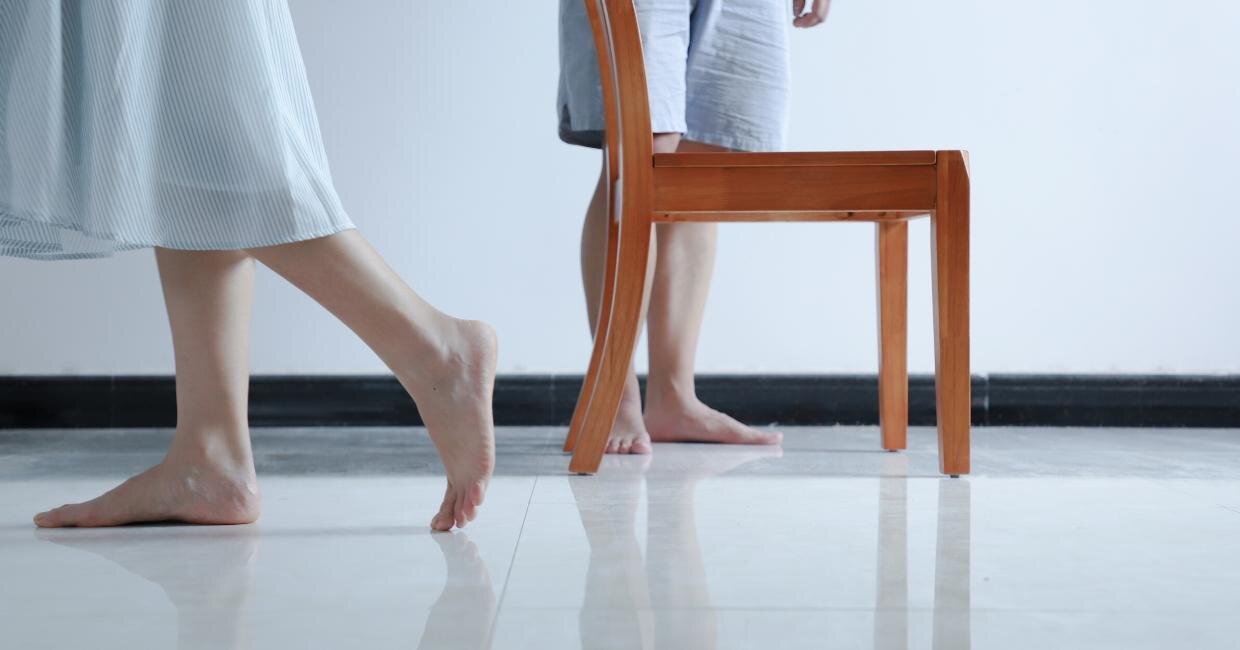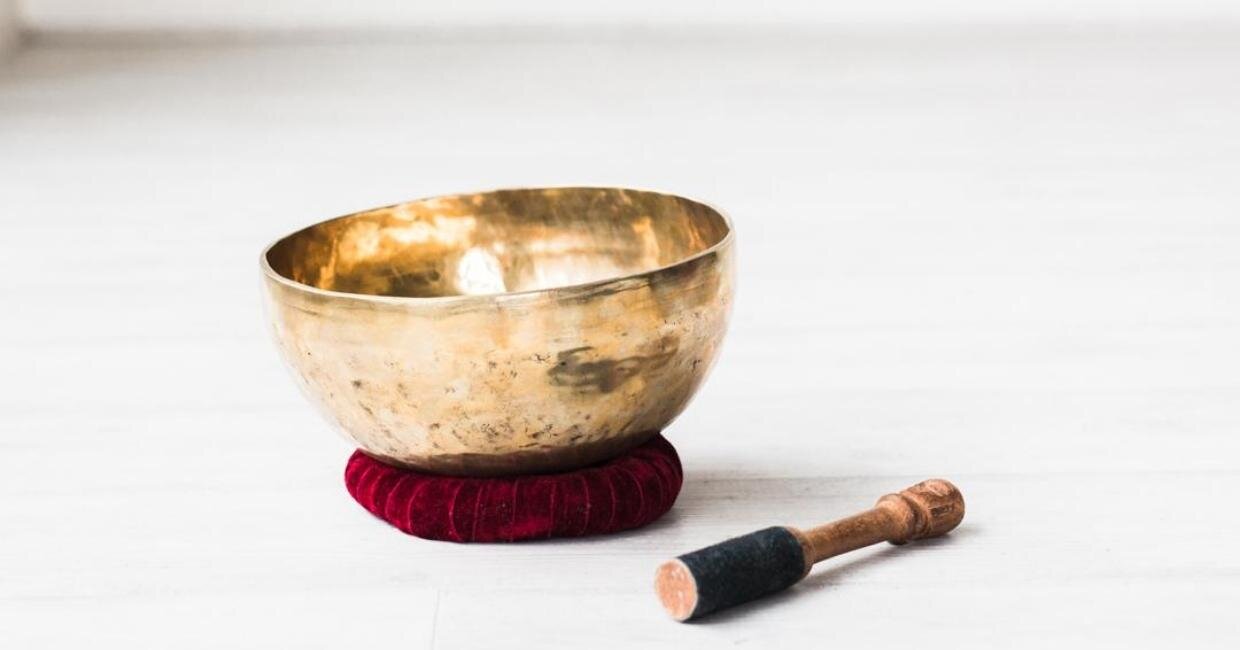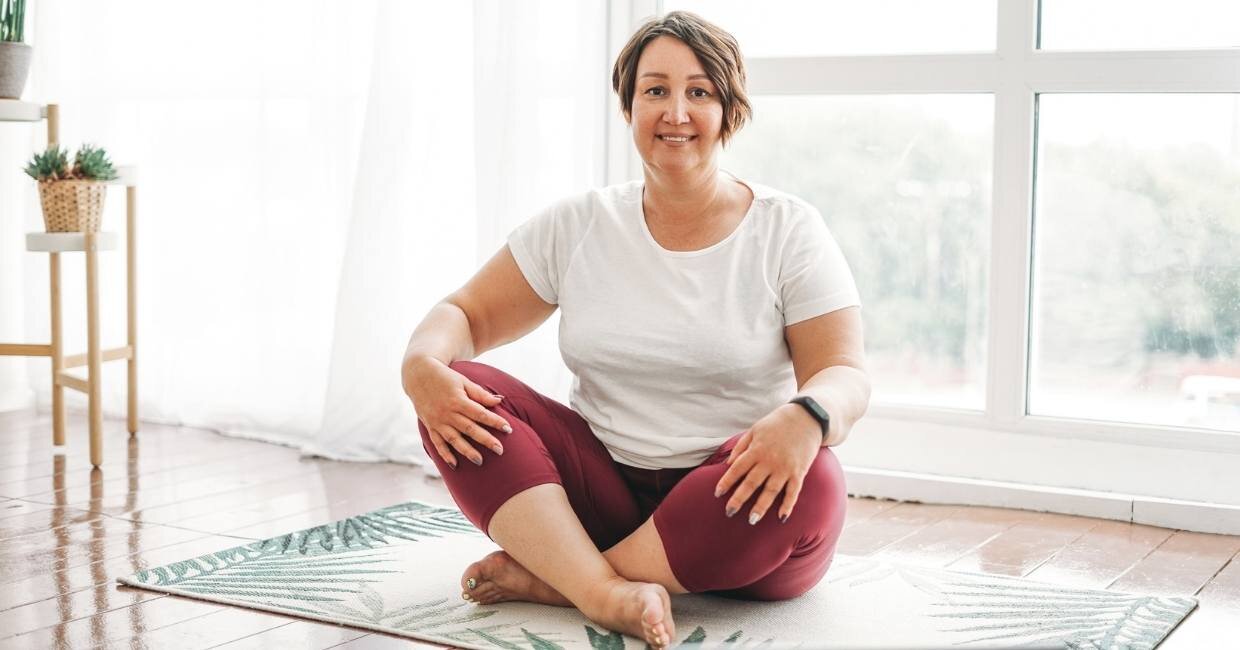Meditation + Gut Health: How Are They Related?
When your body is in fight or flight, it isn’t able to direct much energy towards proper digestion.
When you think of meditation, you probably don’t associate it with better digestion and gut health. I know I didn’t until I learned just how much-unresolved stress influences our gut health and just how powerful meditation is for decreasing stress and improving our ability to digest.
Most of us don’t know how to shake off the stressors of daily life. Now, if you know me, then you know that I’m a big fan of having appropriate stress — the kind that facilitates growth and development. But if you’re feeling anxious or rushed day in and day out, your body gets stuck in overdrive. This is a survival mechanism that’s been with us since long before our frontal lobes developed. The fight-flight-freeze part of our nervous system is useful for survival. It helps us to fight off predators and run for our lives. But we have to be able to settle and calm too. It’s all about finding a healthy rhythm.
When your body is in fight or flight, it cannot direct much energy towards proper digestion. When we’re in a hurry, the food we take in is focused on work, or worried sits in our guts. Our biological attention is elsewhere. It isn’t until we’ve calmed down that digestion really kicks in. That’s where meditation comes in. Meditation can help you learn to let go of work, worry, and hurry and switch on rest & digest. Let’s take a basic look at how.
Meditation & Digestion.
Humans were never designed to be stressed out all the time, and when we learn to calm our nervous systems, our health improves dramatically. Our nervous system and the gut are inextricably linked.
Irritable Bowel Syndrome
One study focused on teaching the Relaxation Response Meditation to those with Irritable Bowel Syndrome (IBS) and Inflammatory Bowel Disease (IBD). A one-year follow-up found that many of them continued to show “significant additional reduction in pain and bloating.” (1-3) Another more recent pilot study looked at Relaxation Response Meditation's impact on genomic markers related to IBD. They found that meditation reduced RR-MBI response genes' expression was most significantly linked to inflammatory response, cell growth, proliferation, and oxidative stress-related pathways. (4)
But you don’t need IBS or IBD to reap the digestive benefits of meditation.
Weight Loss
Meditation can also help with weight loss. A 2017 meta-analysis of 19 different studies (5) found that diet and exercise work in the short term, but eventually, the study participants’ weight was gained back after the programs ended. On the other hand, weight loss protocols that included mindfulness interventions such as meditation and healthy eating and exercise were seen to be more effective in reducing weight and keeping it off.
So, why is it possible that meditation helps when it comes to weight loss? Loosely put, it goes back to living a fight-flight lifestyle. If our cortisol levels are consistently high, we have a greater chance of obesity over time, according to a 2017 study. (6) Some research shows that generalized meditation helped reduce cortisol and C-reactive protein levels. (7)
Ways To Bring Meditation Into Your Life?
It’s important to remember that there are a lot of different ways to meditate. For many, taking the time to scan their horizons and soften their gaze onto a point of interest will be the most accessible. For others, it will be a process like tuning into the breath, observing or naming the thoughts that arise, letting those thoughts go, and then once again returning to the breath. Whatever technique or strategy works best for you at the moment is always the right one… although you’ll likely adjust and refine “what’s best for you” over time. As your stress levels lower and your nervous system regulates, your digestion will improve, and you’ll have more energy for doing the things in life that bring you joy.
Body Scan
The body scan is one of the elements woven into the Feldenkrais Method® and is utilized in many Mindfulness-based meditation programs. Some of the research literature shows that it can reduce some of the symptoms associated with IBS & IBD, lower anxiety, and decrease pain. The basics are simple and easy to do first thing in the morning or last thing at night. Starting with your head and working down to your arms and feet, notice how you’re making contact with the surface beneath you. Feel the weight of your body. Observe the muscles in your head and neck and notice if you feel tense, relaxed, calm, or anxious. As you observe yourself, see if you can begin to take more support from the surface you are making contact with and let yourself settle into a sense of softness and relaxation to areas of your body that feel tense. Once you reach your feet, work back up your body. (8,9)
Progressive Muscle Relaxation
The general intention of Progressive Muscle Relaxation is to hone in on your ability to relax by intentionally comparing relaxed and tense states. This can help reduce anxiety and stress by bringing awareness to and then releasing the physical aspects (i.e., muscle tension). This process offers a plethora of uses (and research), from decreasing stress and the associated hormonal responses like cortisol production to curbing night eating. It can also reduce anxiety & depression and improve emotional well-being. I know that’s a tall order, but I promise that the practice is simple. The basic gist of this practice is to engage the muscles of one area or region at a time and systemically work your way from head to toe. (10-15)
Guided Imagery
Guided Imagery can be an excellent way to engage your nervous system and calm your physiology. Like meditation, there are also many ways to imagine. One favorite practice is to imagine a soothing waterfall washing away tension from your body and mind. Depending on your imagery preference, you might see the waterfall washing over you as an outside observer — like watching a movie. However, you can also imagine engaging your senses and thus feeling the imagery from the inside out. You might feel the water hitting your skin, or smell the fresh air, or taste the water droplets as they softly land on your tongue, or even be swept away by the soothing sound of the water falling around you. Take a moment to discover your preference and try to make your image as vivid as you can while slowly integrating some of your other senses. (3,16)
Breath Focus
There are many ways to utilize the breath in meditation and for relaxation. Like all forms of practice, focusing on the breath will work well for some and not so well for others. If bringing your attention to your breath elevates your sense of overwhelm or causes you anxiety, then try another practice, like the Progressive Muscle Relaxation Technique. The essential aspects of focusing on the breath are simple. Begin by sitting comfortably. Tune into your breath, follow the sensation of inhaling from your nose to abdomen, and out again. Let the tension go with each exhalation. When you notice your mind wandering, return to your breath. Or click the link in the box above or below to receive a guided audio.
Try This
Find Time For Five
We all have five minutes to spare. It’s just five minutes. Maybe you subtract it from the time you spend on social media or the time you spend watching TV. You can snag a quick five-minute break at work, take five at lunch, or grab your five at sunrise. Schedule it into your calendar each day. Set the alarm as a reMINDer. Whatever it takes to pause and breathe. It is always easy to come up with reasons why we “can’t find the time.” But have you ever considered that taking the time to breathe can make all of those other moments feel less frantic and more productive? They may even feel more meaningful and soulfully satisfying. But most importantly, taking a little bit of time to attend to yourself can go a long way towards shifting your physiology and supporting that lovely internal ecosystem that resides within your gut.
Four Easy Ways To Incorporate Meditation Into Your Life
Take a few minutes in the morning or evening to watch the Sunrise and Sunset. Soak in the beauty, drink in the calm, and let your eyes soften out onto the horizon.
Give yourself 5-10 minutes a day to sit down in a quiet, comfortable place and focus on your breath. A little bit of quiet each day can go a long way.
Take a few. Take a few seconds or minutes before you eat or sip your cup of tea to take in the smells, the temperature, and the moment. You might even add in a prayer or acknowledge the effort that has gone into what you’re about to consume (i.e., gratitude)
Enjoy a guided meditation. Letting the voice of another guide you into relaxation can be so much easier than doing it on your own.
+References
- Keefer L, Blanchard EB. The effects of relaxation response meditation on the symptoms of irritable bowel syndrome: results of a controlled treatment study.Behavior Research and Therapy.2001 Jul;39(7):801-11.
- Keefer L, Blanchard EB. A one year follow-up of relaxation response meditation as a treatment for irritable bowel syndrome.Behavior Research and Therapy. 2002 May;40(5):541-6.
- Mizrahi MC, Reicher-Atir R, et. al. Effects of guided imagery with relaxation training on anxiety and quality of life among patients with inflammatory bowel disease.Psychology and Health. 2012;27(12):1463-79. doi: 10.1080/08870446.2012.691169. Epub 2012 May 30.
- Kuo B, Bhasin M, et. al. Genomic and clinical effects associated with a relaxation response mind-body intervention in patients with irritable bowel syndrome and inflammatory bowel disease. PLos One. 2015 Apr 30;10(4):e0123861. doi: 10.1371/journal.pone.0123861. eCollection 2015.
- Carrière, K., Khoury, B., Günak, M. M., and Knäuper, B. (2018) Mindfulness‐based interventions for weight loss: a systematic review and meta‐analysis. Obesity Reviews, 19: 164– 177. doi: 10.1111/obr.12623.
- Jackson SE, Kirschbaum C, Steptoe A. Hair cortisol and adiposity in a population-based sample of 2,527 men and women aged 54 to 87 years. Obesity (Silver Spring). 2017;25(3):539-544. doi:10.1002/oby.21733
- Pascoe MC, Thompson DR, Jenkins ZM, Ski CF. Mindfulness mediates the physiological markers of stress: Systematic review and meta-analysis. J Psychiatr Res. 2017;95:156-178. doi:10.1016/j.jpsychires.2017.08.004
- John R. Kelly, Paul J. Kennedy, et. al. Breaking down the barriers: the gut microbiome, intestinal permeability and stress-related psychiatric disorders.Frontiers in Cellular Neuroscience. 2015; 9: 392. Published online 2015 Oct 14. doi: 10.3389/fncel.2015.00392
- Boris Bornemann, Beate M. Herbert, et. al. Differential changes in self-reported aspects of interoceptive awareness through 3 months of contemplative training.Frontiers in Psychology. 2014; 5: 1504. Published online 2015 Jan 6. doi: 10.3389/fpsyg.2014.01504
- Pawlow LA, Jones GE. The impact of abbreviated progressive muscle relaxation on salivary cortisol and salivary immunoglobulin A (sIgA).Applied Psychopysiology and Biofeedback. 2005 Dec;30(4):375-87.
- Chellew K, et. al. The effect of progressive muscle relaxation on daily cortisol secretion.2015;18(5):53844.
- Vander Wal JS, Maraldo TM, et. al. Education, progressive muscle relaxation therapy, and exercise for the treatment of night eating syndrome. A pilot study.Appetite. 2015 Jun;89:136-44. doi: 10.1016/j.appet.2015.01.024. Epub 2015 Feb 4
- Wild K, Scholz M, et. al. Strategies against burnout and anxiety in medical education–implementation and evaluation of a new course on relaxation techniques (Relacs) for medical students.PLosOne. 2014 Dec 17;9(12):e114967. doi: 10.1371/journal.pone.0114967. eCollection 2014.
- Li Y, Wang R, et. al. Progressive muscle relaxation improves anxiety and depression of pulmonary arterial hypertension patients.Evidence Based Complementary and Alternative Medicine. 2015;2015:792895. doi: 10.1155/2015/792895. Epub 2015 Apr 1.
- Apóstolo JL, Kolcaba K. The effects of guided imagery on comfort, depression, anxiety, and stress of psychiatric inpatients with depressive disorders.Archives of Psychiatric Nursing. 2009 Dec;23(6):403-11. doi: 10.1016/j.apnu.2008.12.003. Epub 2009 Mar 27.
RELATED POSTS











